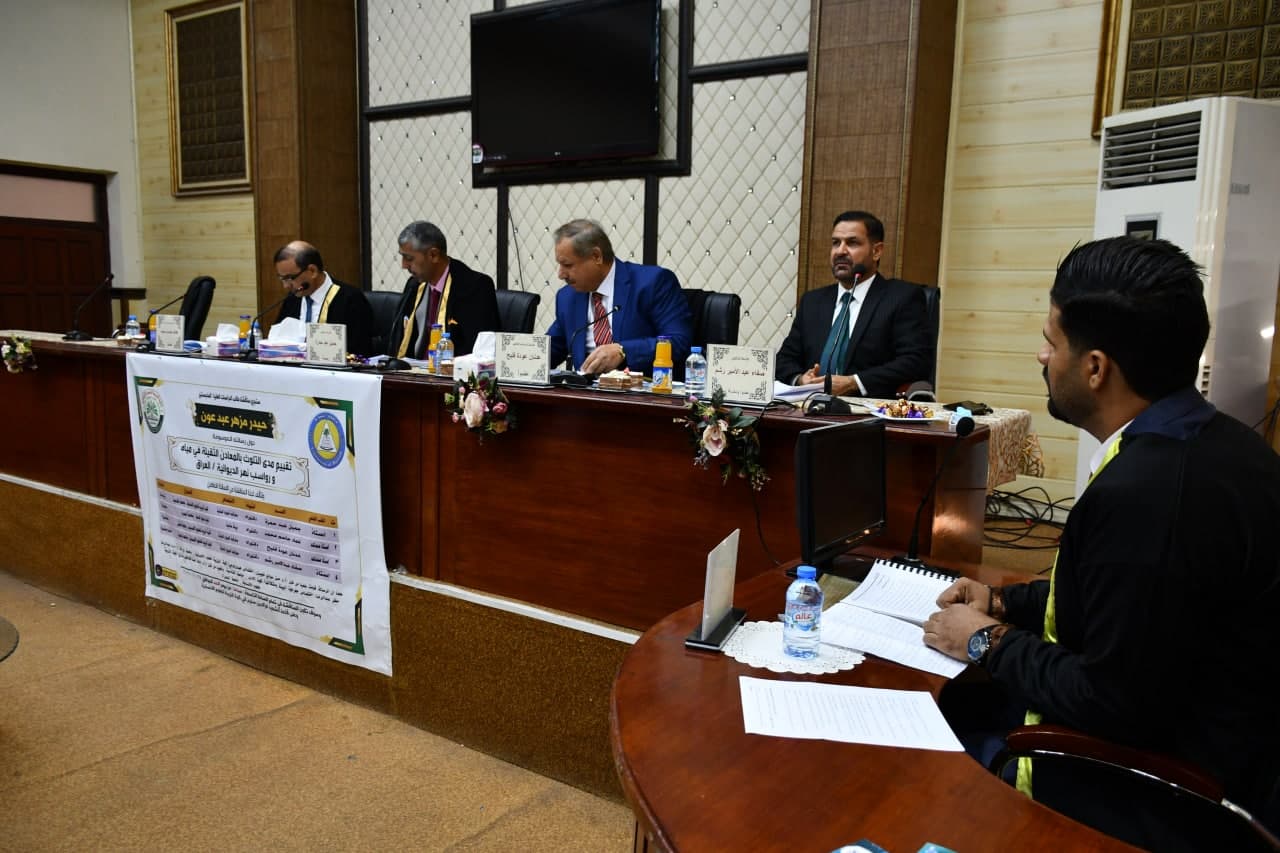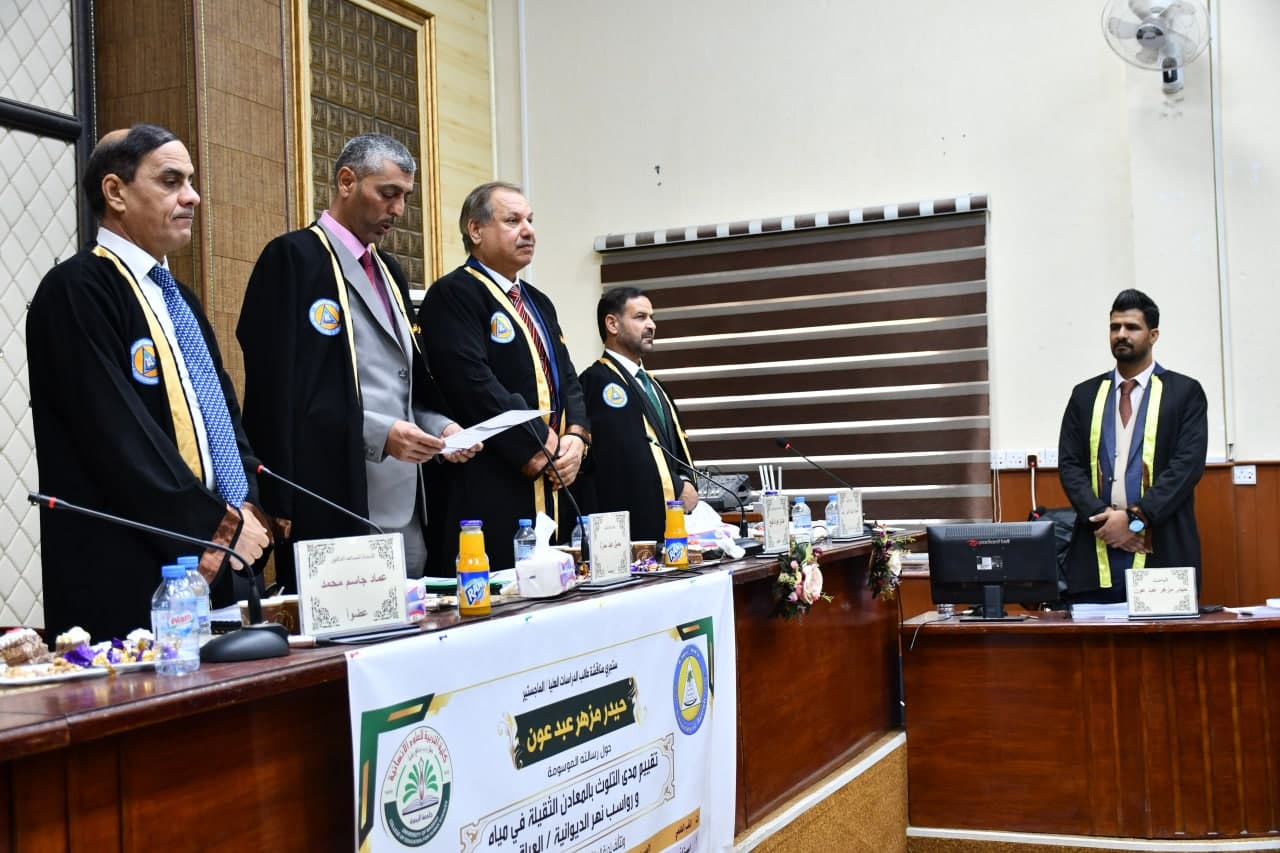Master's thesis at the University of Basra discusses (Assessment of the extent of pollution by heavy metals in the water and sediments of Al-Diwaniyah River, Iraq)
A master’s thesis in the Department of Geography/College of Education for Human Sciences - University of Basra (Assessing the extent of heavy metal pollution in the water and sediments of Al-Diwaniyah River, Iraq) for the student (Haider Mazhar Abd Aoun Al-Kafari)
The thesis dealt with the study of the extent of variation in the concentration of heavy metals in the water and sediments of Al-Diwaniyah River by dependence On Iraqi and international standards. As eight minerals were studied (Pb, Manganese, Mn, Ni, Chromium, Cr, Zn, Copper, Cu, Arsenic, As, and Cadmium Cd) and the characteristics of heavy metals and their sources were studied, as well as the study of the physicochemical properties of water in Al-Diwaniyah River and the volume of sediments.
The thesis included five chapters represented in the first chapter, which focused on the theoretical framework, while the second chapter focused on clarifying the characteristics of the study area represented by the dimensions of the riverbed of the Diwaniyah River, as well as the geological situation, soil, climate, natural vegetation and the role of human activities in affecting the river. The statement of the role of heavy metals and the definition of their sources dealt with the third chapter. The fourth chapter was based on the interpretation of the positive and negative ions in the waters of Al-Diwaniyah River, as well as the evaluation of the level of concentration of heavy metals in the water and sediments of the river and the statement of the correlation between heavy metals with physical parameters and sediment sizes. Statement The fifth chapter was limited to assessing the appropriateness of the concentration of heavy metals in the Al-Diwaniyah River with the different uses.
The study concluded that seven out of eight minerals were within the Iraqi and international determinants, while lead (Pb) was the only metal in the Diwaniyah River that was not suitable for domestic uses. As for the concentration of minerals in the sediments, it appears that each of Ni, Pb and arsenic As exceeded the concentrations in the water of Diwaniyah River for the determinants. Globalism .



.